Bringing Curb Management Beyond the Curb
Cities like San Francisco and Philadelphia are exploring new ways to manage assets and rules across curbs, sidewalks, and travel lanes while communicating them via APIs in data standards like the Curb Data Specification (CDS) and Mobility Data Specification (MDS). With support from a SMART grant and collaboration with partner organizations, these efforts are piloting how asset-based policies can be effectively communicated beyond the existing use cases for CDS and MDS, such as curb rules and shared mobility management.
This case study highlights the challenges, opportunities, and key lessons from this initiative, focusing on the need to evolve CDS and MDS to help cities manage public spaces digitally.
From Parking Data and Shared Mobility Program Management to Comprehensive Street Rules
INRIX has a long history of collecting and converting parking data into the Curb Data Specification (CDS) format for more than 125 cities across North America and Europe. Its Curb Analytics software visualizes this data, making it accessible for public agencies to manage parking assets effectively. Through a CDS API, private companies – from mapping providers to ride-hailing and delivery services – can access this data, integrating it into their tools to facilitate more seamless curb operations.
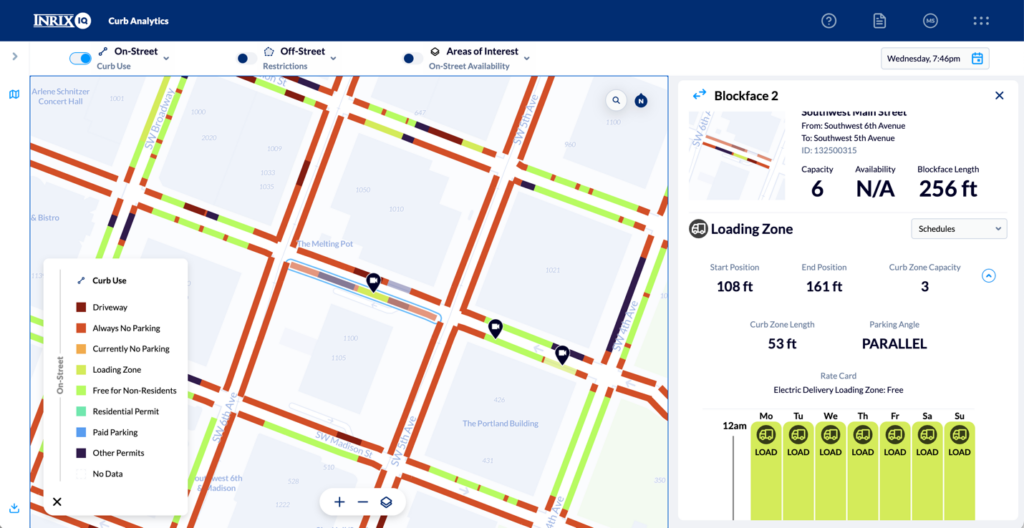
Similarly, INRIX’s Ride Report software supports shared mobility management using the MDS Policy API, helping cities communicate geofenced no-ride zones, fee areas, and equity zones to operators. This public-private ecosystem has played a crucial role in scaling mobility management globally.
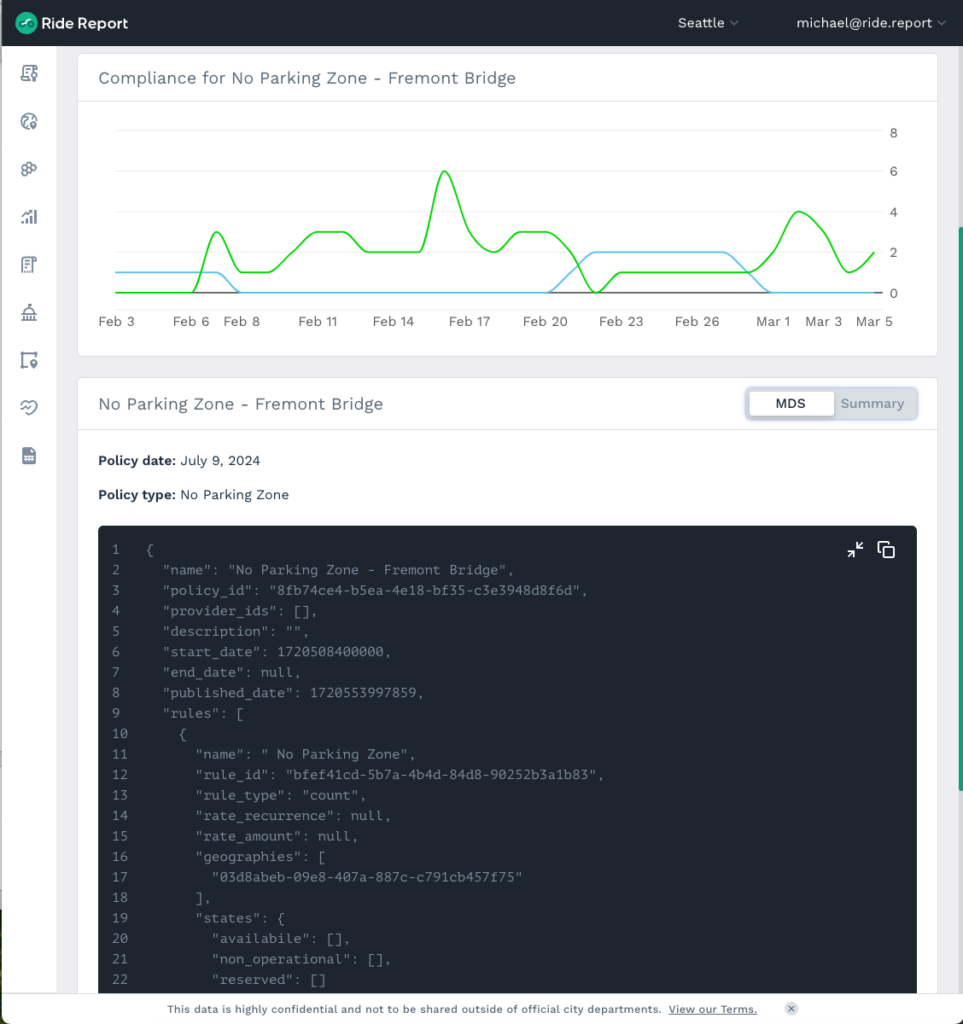
Now, with its new Road Rules product, INRIX is taking curb management a step further, helping agencies dynamically manage rules across the entire right-of-way. Road Rules provides a simple user interface that allows agency staff to update rules for situations such as parade routes, new parking legislation, construction permits, and emergency closures while also automating updates coming from City’s asset management system APIs.
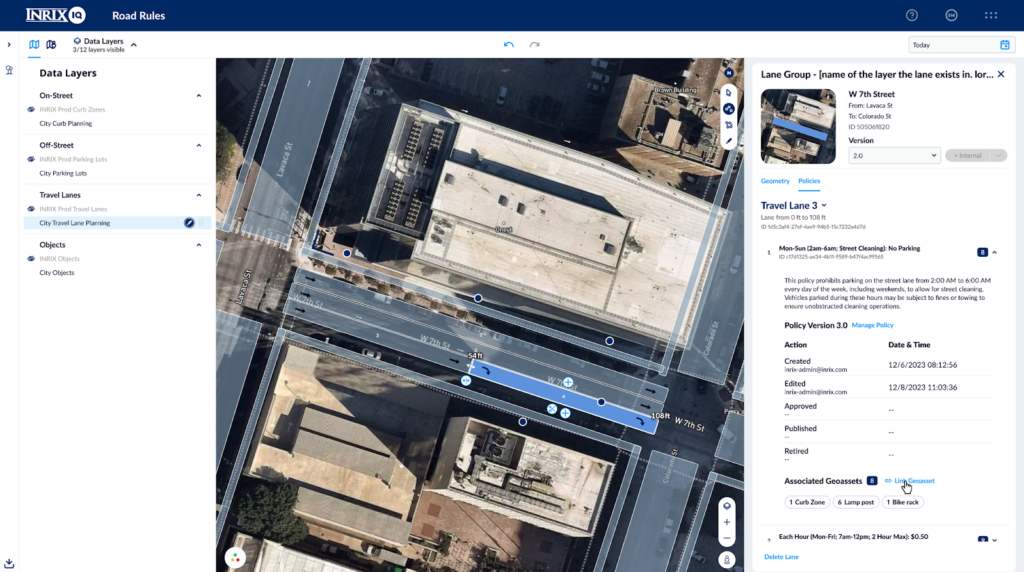
The Challenge: Representing Lanes in CDS and MDS
While CDS is effective for representing curb lane policies and MDS provides a framework for geographic regulations, neither specification fully supports the representation of individual travel lanes. This gap poses challenges for cities trying to digitally communicate rules like reversible lanes or temporary closures.
Addressing these challenges will require collaboration between cities, technology providers, and standards organizations.
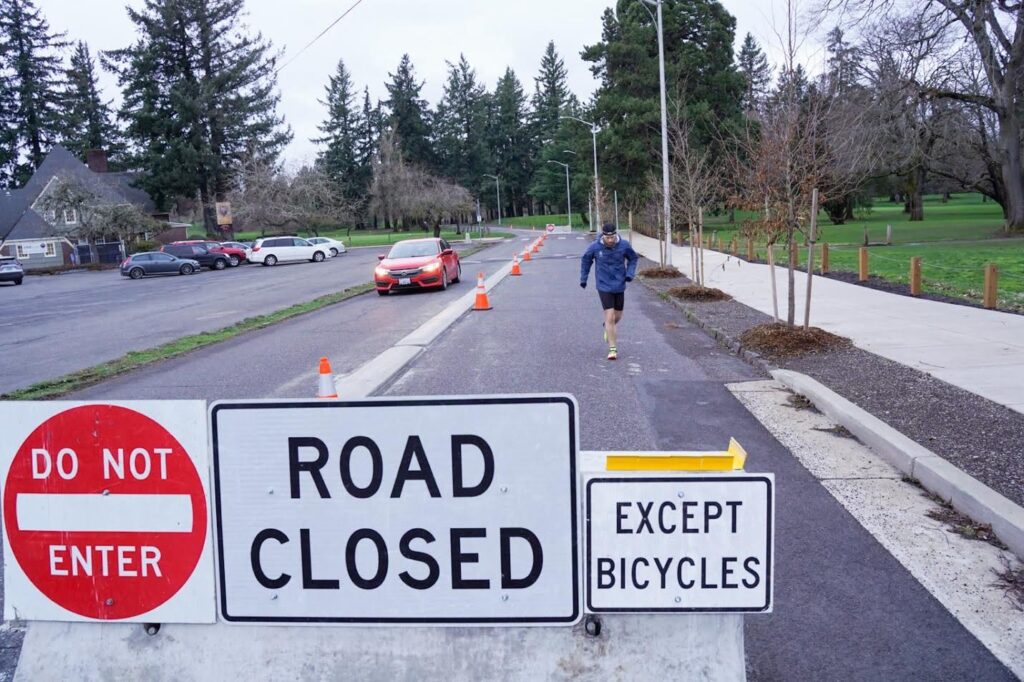
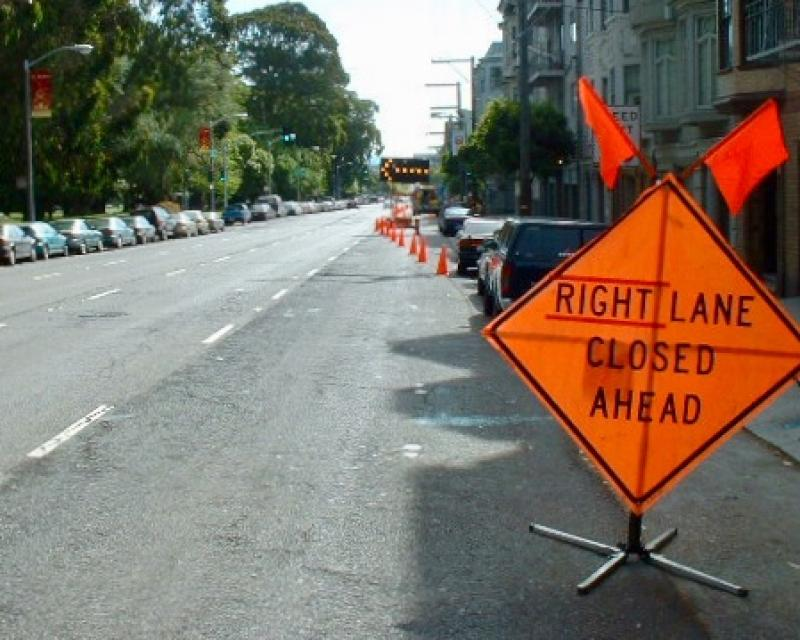
Collaborative Problem Solving: Insights from Industry Leaders
In January 2025, INRIX and OMF co-hosted a working breakfast at the Transportation Research Board’s Annual Meeting, where more than 30 attendees explored these challenges. Presenters included Stephanie Dock (Washington D.C. Department of Transportation), Chris Shelley (City of Philadelphia), and Michael Schwartz (INRIX).

Discussions focused on the complexities of representing travel lanes in CDS and MDS, with participants emphasizing the importance of internal coordination within agencies to keep asset data accurate and aligned across departments. Clear external communication with private stakeholders was also identified as essential.
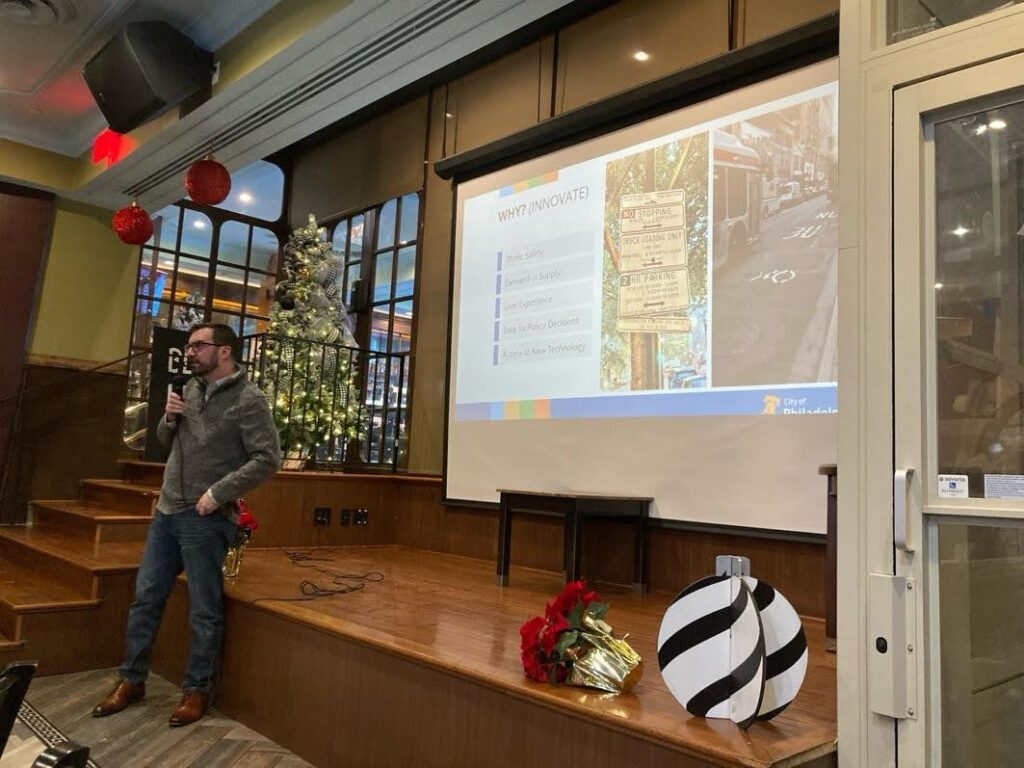

Following this event, the conversation continued at OMF’s MDS Working Group meeting. While some participants considered adopting standards like the Workzone Data Exchange (WZDx) and Connected Work Zone (CWZ), these were deemed less applicable for urban rules management.
The consensus was clear: evolving CDS and MDS to encompass additional public space rules will be more beneficial than developing an entirely new specification.
Looking Ahead: Supporting Cities Through Digital Standard Enhancements
The City of Philadelphia and its project team will continue working with internal and external stakeholders to refine how CDS and MDS can represent rules for travel lanes and other right-of-way elements. These conversations are expected to yield actionable improvements to data standards that support cities’ day-to-day management of public space.
While the private sector plays a valuable role in implementing new technologies, the primary focus remains on helping cities streamline internal operations. From asset management to permit review and sign inventories, enhanced CDS and MDS capabilities will provide tangible benefits for municipal agencies today.
Interested in contributing to these efforts? Get involved in the MDS and CDS Working Groups.
If you would like to learn more about Road Rules or how the data standard efforts will be first applied via the City of Philadelphia SMART grant project, please reach out to Michael Schwartz at: michael.schwartz@inrix.com.





